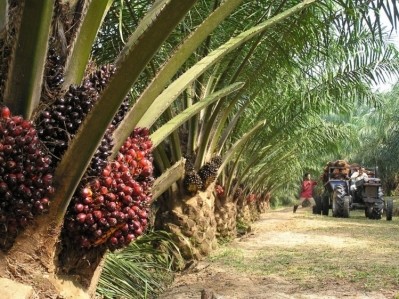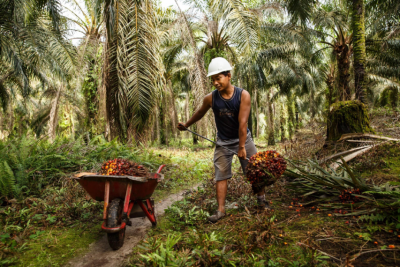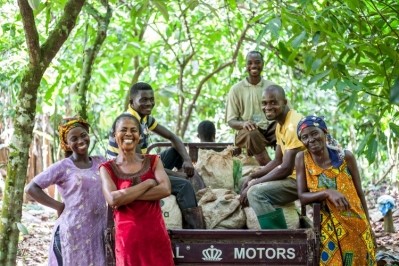Guest article
The road to 0% deforestation for confectionery FMCGs

For fast-moving consumer goods companies (FMCGs), a valuable commercial advantage can be seized by those who can prove they leave the world’s forests in a better state than they found them. In the confectionery sector, this is particularly the case, since ingredients like palm oil, cocoa, and sugar are among the leading commodities driving deforestation.
Today, forests are disappearing at roughly 2/3 the pace they were in 1990. But that change hasn’t gone far enough; the NYDF Assessment Partners estimate that deforestation needs to decrease by a rate of some 1 million hectares a year to achieve a target of 0% deforestation by 2030. That’s despite the important effort that FMCGs, both in the confectionery sector and elsewhere, have made to reduce their impact. So, what’s preventing confectionery FMCGs from achieving 0% deforestation – and what changes need to be made to help them achieve their goals?
The road to 0% is far from complete
It’s easy to look at the current rate of deforestation and assume companies aren’t doing enough to reduce their contribution. This might be true to an extent, but it’s a simplistic narrative that risks missing the point. The barriers to 0% deforestation are complex and multi-faceted – and plenty of progress has already been made to overcome them.
Companies looking to reduce their deforestation contribution tend to focus on three priorities; traceability, transparency and certification. Generally, that involves updating policies, setting targets and establishing contractual obligations for supply chain partners – all with a view to being certified as a sustainable producer.
Let’s take palm oil as an example – an industry that has a long association with deforestation. A recent Consumer Goods Forum (CGF) report notes a steady, year-on-year decrease in the sector’s contribution to deforestation, which they attribute to key changes like:
- The industry-recognized Roundtable for Sustainable Palm Oil (RSPO) certification
- Technology like satellite deforestation monitoring
- Action plans like the Africa Palm Oil Initiative
Similar trends can be seen across several FMCGs sectors, and such commitments have undoubtedly contributed to the progress we’ve made over the past few decades. But, as we know, the changes haven’t gone far enough. And as we’ll discover, even having the right certification isn’t always a guarantee of sustainability. What looks good on a product wrapper or sounds good on a press release doesn’t always contribute to tangible improvements for the world’s forests.
The problem of accountability
Much of the challenge of reducing deforestation in 2021 comes down to accountability. A packet of sweets or chocolate bar is almost never the product of one single company; it goes from farmers or plantation owners through processors, manufactures, traders and retailers before finally arriving on our shelves. So, whose job is it to ensure that product is sustainable?
This is the problem that many FMCGs grapple with: all the well-intentioned targets in the world will achieve nothing if they’re not matched by the next partner in the supply chain. Companies try to solve this by putting no-deforestation clauses in their supplier contracts. But these are next to useless if you don’t have the resources or visibility to enforce them. How can you ensure your suppliers meet their commitments if you don’t know who their suppliers are – and don’t have the resources to monitor them?
A new approach
While these challenges are making further progress difficult, they’re not unsurpassable. Every company in the supply chain benefits from an increase in consumer demand for sustainable products. And on an industry-wide level, much of the world’s sugar, cocoa, and palm oil come from a handful of sourcing landscapes. Ensuring the sustainability of, for instance, the Amazon or the forests of Papua is in everyone’s mutual best interests. The challenge is to get everyone to play a collaborative role in conserving them.
This is what public-private partnerships such as the Cocoa Forests Initiative and the CGF’s Forest Positive Coalition for Action look to achieve. The goal is to encourage cooperation, providing direction and visibility for companies across industries and supply chains. But unfortunately, initiatives like this remain few and far between, and the world’s forests can’t afford to wait for direction from governments or fourth sector partnerships.
What can you do?
Now, companies need to work together, pooling knowledge, resources and visibility to better achieve their shared goals. For everyday confectionery FMCGs, there are several immediate steps that can be taken that will have a clear and substantive impact:
- Work with companies in your supply chain and take on some of the responsibilities that your partners are committing to.
- Share information about deforestation efforts, targets and methods across industries and supply chains - and require your partners to do the same.
- Make your targets tangible. Being ‘pro forest’ doesn’t help trees get planted. Instead, create clear benchmarks for areas you aim to preserve, trees you will plant and landscapes you will help restore.
- A supplier’s contractual commitment needs to be enforceable. Dedicate the resources to monitoring and enforcing your supplier’s commitments – and require them to be equally transparent about their own suppliers.
- Pool resources and data across supply chains and industries, enabling more targeted, focused and cost-efficient action against deforestation.
But ultimately, if there’s only one thing that everyday FMCGs in the confectionery sector change, it should be this: don’t let sustainability become a zero-sum game. Don’t wait for larger companies, supply chain partners, governments or consumer demand to provide the direction or impetus for change – because they’re all waiting as well. Whether you’re manufacturing cocoa or selling chocolate, everybody has their role to play in the road to zero deforestation.
- Alan Kroeger is Head of Supply Chains & Natural Climate Solutions at Satelligence






